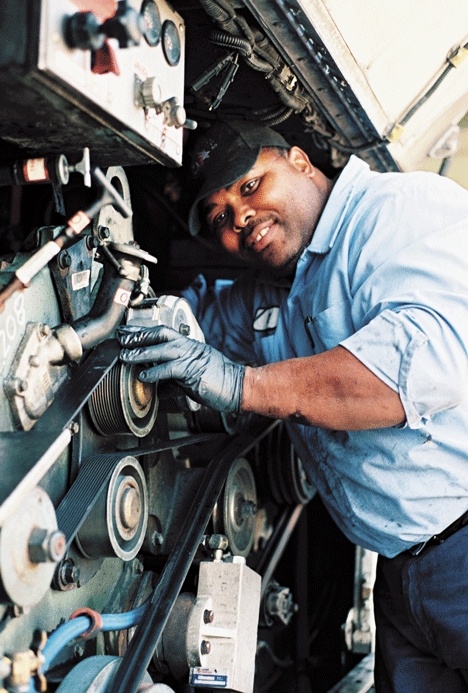Island Transit officials will begin a series of public meetings next week to explain the need for a sales tax increase to keep the bus system operating without major cutbacks.
“We’re looking at 34-percent service cuts if the voters say no,” said Martha Rose, Island Transit executive director, referring to the election on Tuesday, Aug. 18.
In 2008, the bus system’s various operations carried 1,167,500 passengers a total of 2,222,011 miles.
The transit board on May 18 unanimously approved putting the measure on the ballot, but not everyone was happy about it.
Jim Palmer, who represents Oak Harbor as a city councilman, said he supported sending the issue to a vote, but that’s as far as he’ll go.
“As a citizen, I’m not supporting it,” he said, speaking Wednesday from a convention in Spokane. “When taxes go up, they surely don’t go down.”
Palmer would like to see the bus system make more cuts before asking the taxpayers for more money, and he’d like to see the issue of charging fares reconsidered.
Island Transit is in a financial bind because sales tax receipts are declining due to the recession. Voters are being asked to raise the sales tax in Island County by three-tenths of 1 percent, which would add 3 cents to a taxable purchase of $10.
If approved, the tax hike would boost the local transit sales tax to .9 percent, which is the legal limit.
Voters last bailed out Island Transit in 2000, approving a sales tax increase to make up for funding lost when the motor vehicle excise tax was slashed by a statewide initiative.
“That was the wildest budget year we ever had,” Rose recalled. Even with the sales tax increase, the bus system had to reduce service that year.
But now there’s the worst economy in decades to deal with.
In response, Island Transit has already consolidated routes, saving some $700,000 according to Rose, but the existing transit sales tax receipts continue to plummet. The tax is projected to bring in $4.8 million this year, down from $5.2 million in 2008. In 2010, the tax is projected to produce only $4.4 million.
If voters approve the new tax, it would boost 2010 revenues to a projected $6.6 million and allow existing services to continue.
“We don’t want to lay off our folks and cut off people from getting to work,” Rose said. “It’s the voters’ choice on how they want their transit system to be.”
Since it started operating in 1987, Island Transit has been fare-free. The free, or “pre-paid,” policy has given the island’s bus system a folksy charm and encouraged ridership, but it’s always had its critics.
However, Rose said that people who think bus users should pay a fare won’t get their way even if the tax increase fails on Aug. 18.
“We won’t charge fares anyway, because we won’t have the money to put a system in,” she said.
Rose has spent years defending the fare-free system and is always ready to go ten hard rounds with anyone who argues otherwise. Armed with a flurry of charts and statistics, she is confident that charging fares would cost money, not make money, for Island Transit, which is the only transit system in the state that is entirely fare-free.
In a nutshell, Island Transit sees the cost of electronic fare boxes for the entire fleet ($13,000 each) at just over $1 million. It is estimated that each fare collection will take a minimum of 30 seconds, adding 34,908 hours to the schedule. Not only would Island Transit have to pay for those extra hours of work, but it would throw the schedule into turmoil.
Including the extra hours of service that would require more buses, and adding financial auditing and security requirements, fare boxes are projected to cost Island Transit as much as $7 million the first year
Meanwhile, fares at $1 each would bring in only $675,000, figuring ridership would decline 40 percent.
In the face of such numbers, Rose is perplexed that charging fares is still an issue.
“Some people just refuse to look at the facts,” she said.
In response, Palmer questions some of the numbers, and says Island Transit should look at other ways of charging passengers than the traditional fare box.
“I don’t want to drastically reduce service by charging fares, but we should examine other ways of doing it,” he said, pointing to pre-paid cards as an example.
If voters reject the sales tax increase, Rose said Island Transit would have to immediately eliminate Saturday service and a lot of the outlying service routes, some of which were recently added, would be cut. Some other services, such as the popular inter-county routes, would stay, because they’re funded by the state.
Rose urges votes to attend the public meetings starting next week to ask questions and hear the reasoning behind the proposed tax increase.
“Come out and talk about the issues, and get some factual information,” she said. “This is to keep our existing service healthy.”



